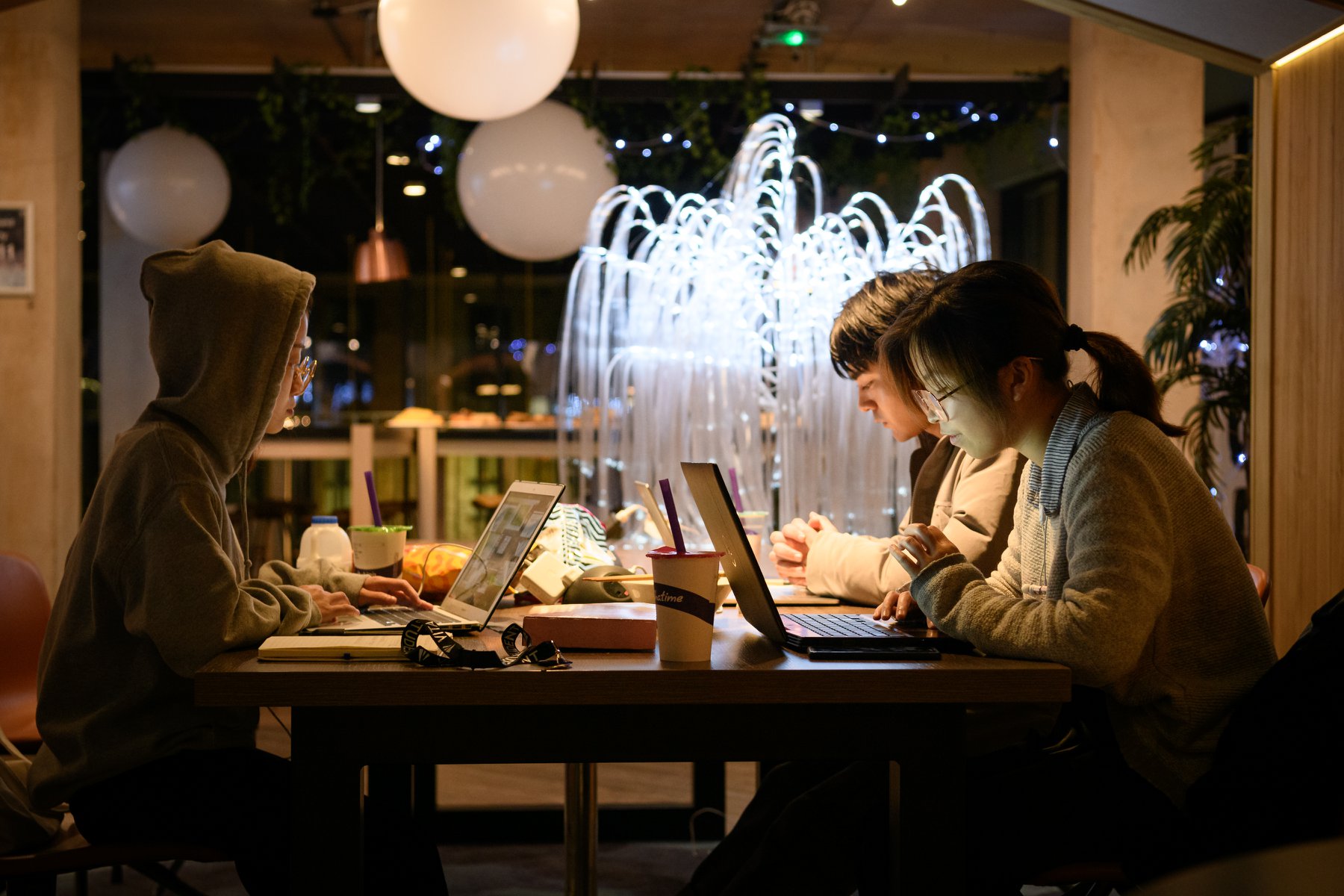Our guest blog with techtimeout will help you to strike a healthy balance with your screen.
For mental health awareness week, we’re taking a look at the impact that technology has on students while at university.
This week we’ve called on techtimeout to write for us and help us to understand the ways that we can get space from our screens and improve our mental health.
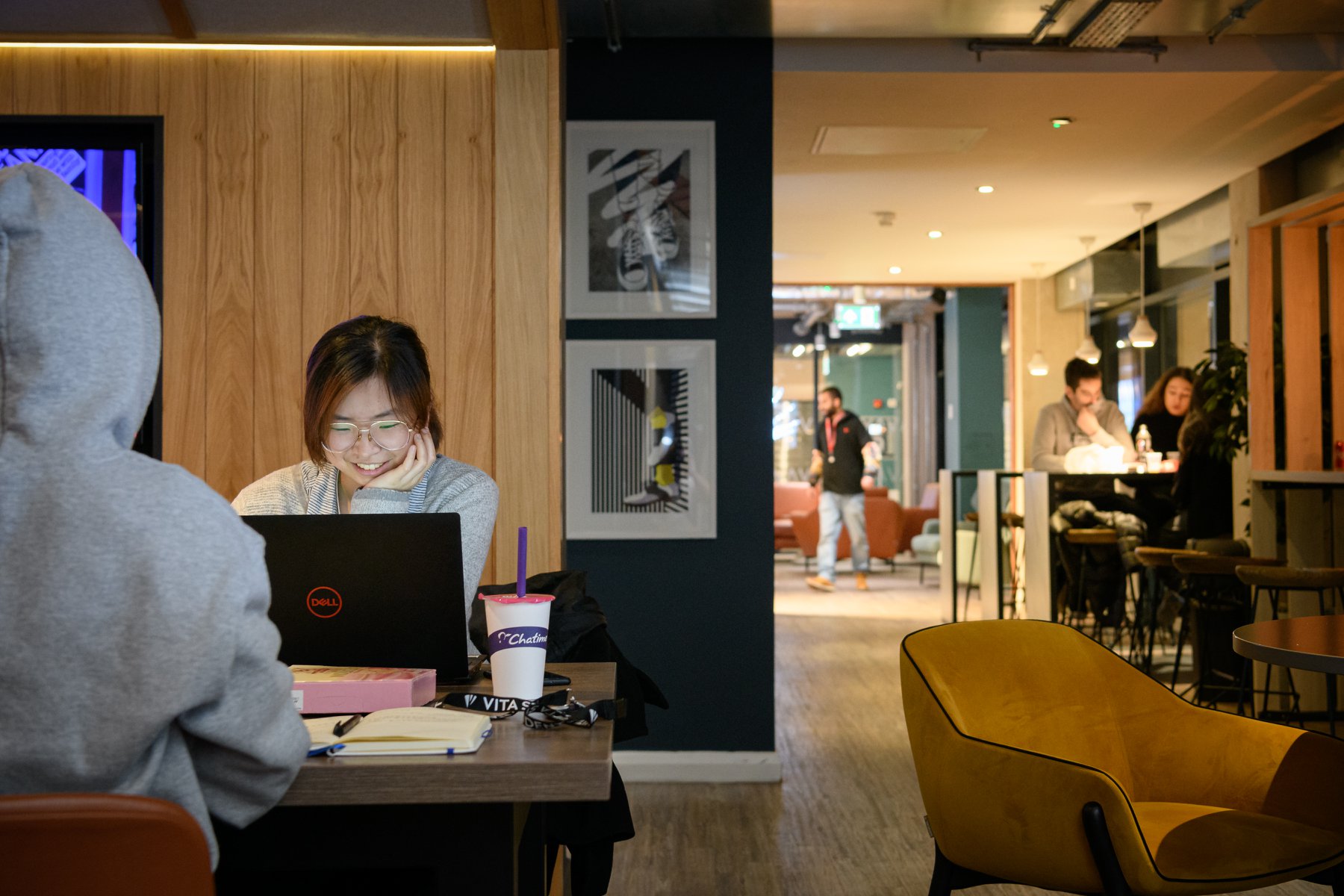
Writing assignments, online studying, watching Netflix, messaging friends, scrolling TikTok… It’s easy to see why screen time is typically high while at university.
At techtimeout, we’re concerned with the impact that this time on screens has on mental health.
On average, the UK university student’s life satisfaction ranks low in comparison to the working adult. It’s for this reason we need to explore the factors influencing mental health.
We’ve identified many ways that technology influences mental health and included our top tips to help manage the impact.
Digital distractions
One minute you’re writing an assignment – the next, you find yourself mindlessly scrolling and wondering how you got there. Does this sound familiar?
We’re continually bombarded with messages and updates – and this makes focusing nearly impossible. Even when we aren’t receiving messages, we are so used to the feeling of receiving them that we can’t stop picking up our phones and checking.
This behaviour can have a severe impact on productivity and leave you feeling overwhelmed and anxious.
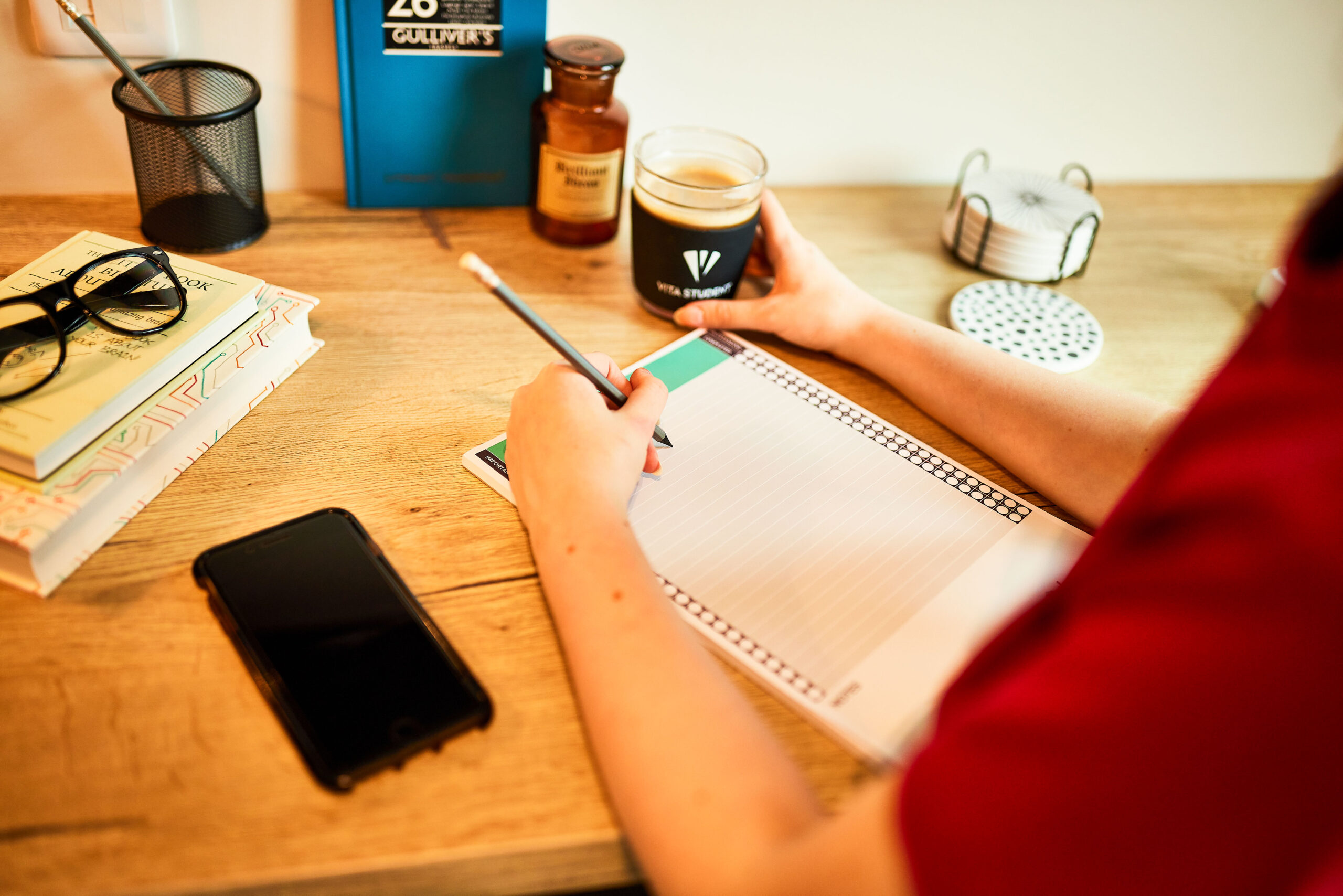
Top techtimeout tips:
Turn your notifications off! You can decide which you leave on so that people can still get in touch with you. Turning off the non-essentials can eliminate distractions. You won’t miss anything. You can just choose when you check your messages instead of allowing them to interfere with your productivity.
Practise the popular Pomodoro Technique while writing assignments. This deceptively simple yet effective method balances intense work periods of 25 minutes with 5 minute breaks. You can access the techtimeout timer here.
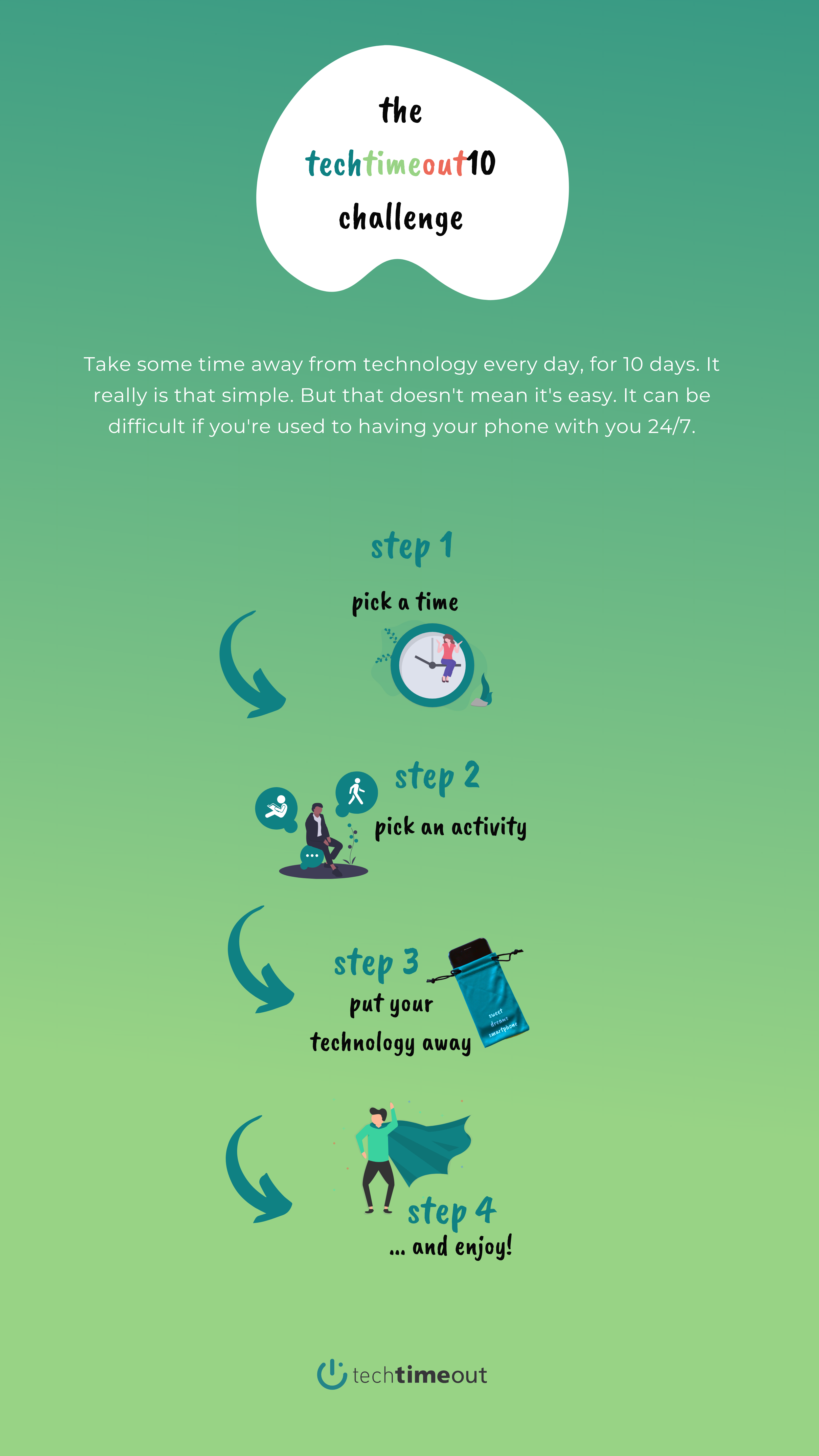
Comparison culture and FOMO
Comparing yourself to others on social media can be a dangerous game. With filters, angles and no context, it’s possible for people to portray a different life on social media. It’s likely you’re comparing yourself to someone who’s carefully curated a version of themselves that’s very different to their reality.
Before social media, the circle of comparison was much smaller. People would typically compare themselves to people from a similar background, financial situation and everyday life. Now it’s possible to compare yourself to anyone and everyone all over the world.
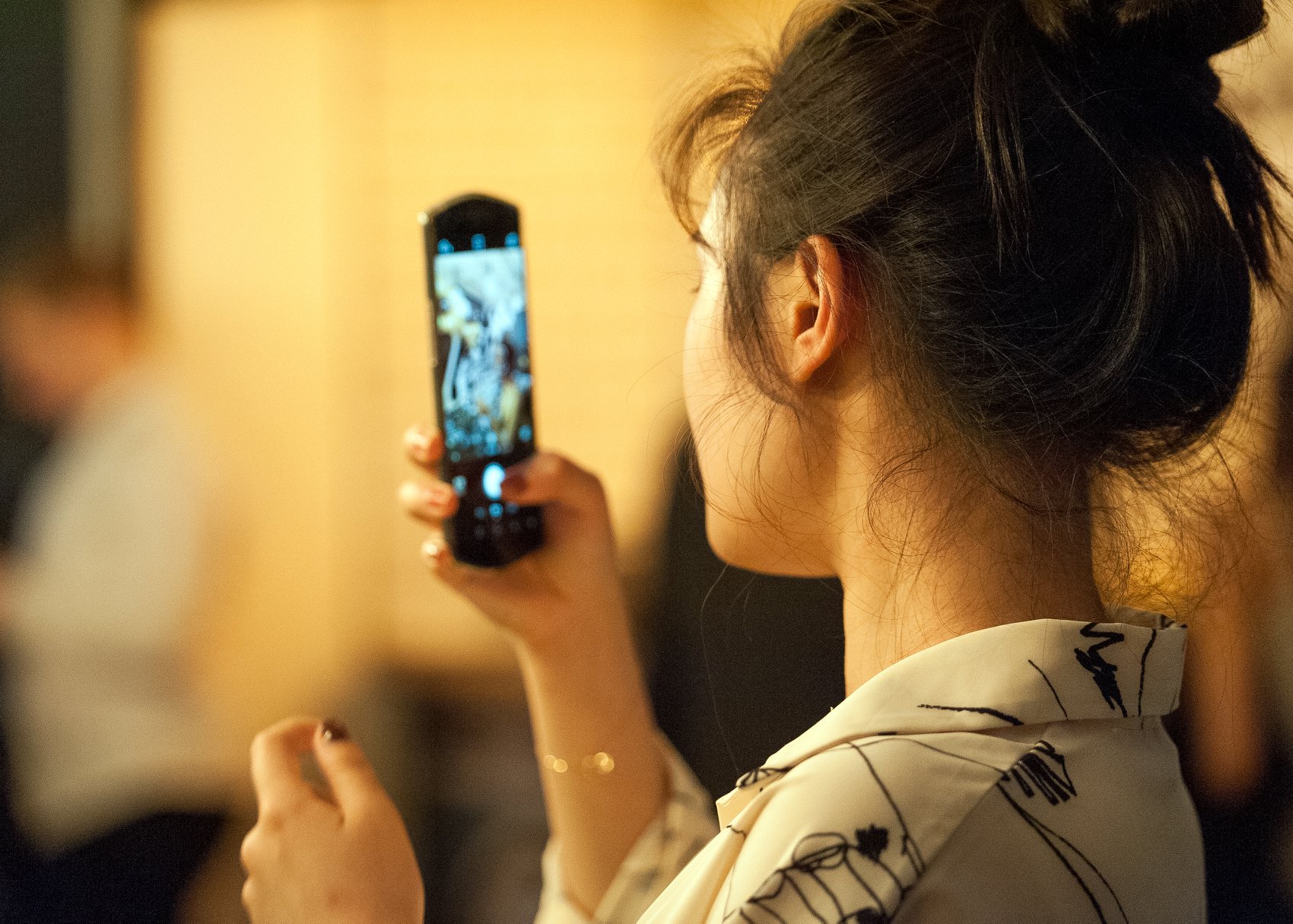
Logically, it’s easy to understand that you’re comparing yourself to someone’s highlight reel but that doesn’t mean that you can turn off feelings of envy and inferiority.
Top techtimeout tip:
If your social media news feed is making you feel negative emotions then it may be a good idea to curate your feed and unfollow those that make you feel bad.
Loneliness and isolation
Technology was designed to foster connection but in reality, it can do the opposite.
It’s understood that the influence of social media on loneliness varies over different age groups. For students, a recent survey showed that 17% reported feeling lonely often or always. This is significantly higher than the adult population in the UK. As well as this, a US study found that young people with higher social media use also experienced higher perceived levels of social isolation.
Social media may support online connections, but does it affect real-world relationships and feelings of isolation? In-person communication can aid relationships, due to eye contact, body language and less chance of misunderstandings.
Top techtimeout tips:
As with most things, balance is best. We would recommend making time for speaking with people in person, or at least over the phone or a video call.
When meeting up with people in person, avoid ‘phubbing’ (snubbing people in favour of glancing at your smartphone).
How you can use technology for good
It’s not all bad news! Technology opens up opportunities and gives us easy access to information. Imagine writing university assignments without the internet…
There’s also the benefit of finding like-minded people within online communities. This can be brilliant for connection.
What’s most important is understanding how your time on screens and social media makes you feel. If you’re experiencing negative symptoms or using technology to distract yourself from other aspects of your life, then maybe it’s time to start introducing healthy habits and re-evaluating your relationship with your screens.

Benefits of disconnecting
Reduced Stress Levels
Stepping away from digital devices allows your mind to unwind and reduces the constant barrage of notifications and information overload that contribute to stress and anxiety.
Improved Sleep Quality
Excessive screen time, particularly before bedtime, can disrupt your natural sleep-wake cycle and interfere with the production of melatonin, the hormone responsible for sleep. Disconnecting from screens in the evening can promote better sleep quality and a more restful night’s rest.
Increased Mindfulness
By disconnecting from digital distractions, you create space for mindfulness practices that promote present-moment awareness and mental clarity. Engaging in activities such as meditation, deep breathing exercises, or simply being fully present in the moment can reduce stress and enhance overall well-being.
Enhanced Focus and Productivity
Constant digital stimulation can fragment your attention and hinder your ability to concentrate on tasks. Disconnecting from digital devices allows you to focus on one task at a time, resulting in increased productivity and efficiency.
Greater Emotional Resilience
Taking breaks from social media and digital news feeds can protect your mental health by reducing exposure to negative or distressing content. Disconnecting allows you to cultivate emotional resilience and maintain a positive outlook on life.
Improved Relationships
Disconnecting from screens enables you to be fully present with loved ones, fostering deeper connections and meaningful interactions. By prioritising face-to-face communication and quality time spent together, you can strengthen your relationships and enhance your social support network.
Enhanced Creativity
Unplugging from digital devices frees up mental space for creativity and innovation. Engaging in offline activities such as art, writing, or problem-solving exercises stimulates your imagination and allows you to explore new ideas without the distractions of technology.
Promotes a Balanced Lifestyle
Disconnecting from digital devices encourages a more balanced lifestyle by encouraging you to engage in a variety of activities beyond screen time. Whether it’s spending time outdoors, pursuing hobbies, or connecting with others, unplugging allows you to experience a more fulfilling and well-rounded life.
Read more about how a healthy diet can aid your mental health.
How do you find the right balance?
There’s a plethora of research that recommends physical activity and time outdoors as a tool to support your mental health. Can you dedicate some of your screen-time to some exercise or fresh air?
At techtimeout, we’ve created a digital well-being challenge called ‘the techtimeout10 challenge’. This 10-day challenge involves taking some time off technology every day to experience the benefits of truly disconnecting. You can find out more here.
If you need support, you’re not alone.
If you are experiencing feelings of anxiety, overwhelmed or if you feel like you have poor mental health, then we would always recommend speaking to a professional.
The team at Vita Student are trained to provide support and your University will have wellbeing services in place to provide support if and when you need it. You can find information on the University website or on campus.
You can also reach out to Student Minds, the UK’s student mental health charity. They have set up Student Space which offers one-to-one support for whatever challenge you’re facing.
Read more about how to look after your mental health at university.
